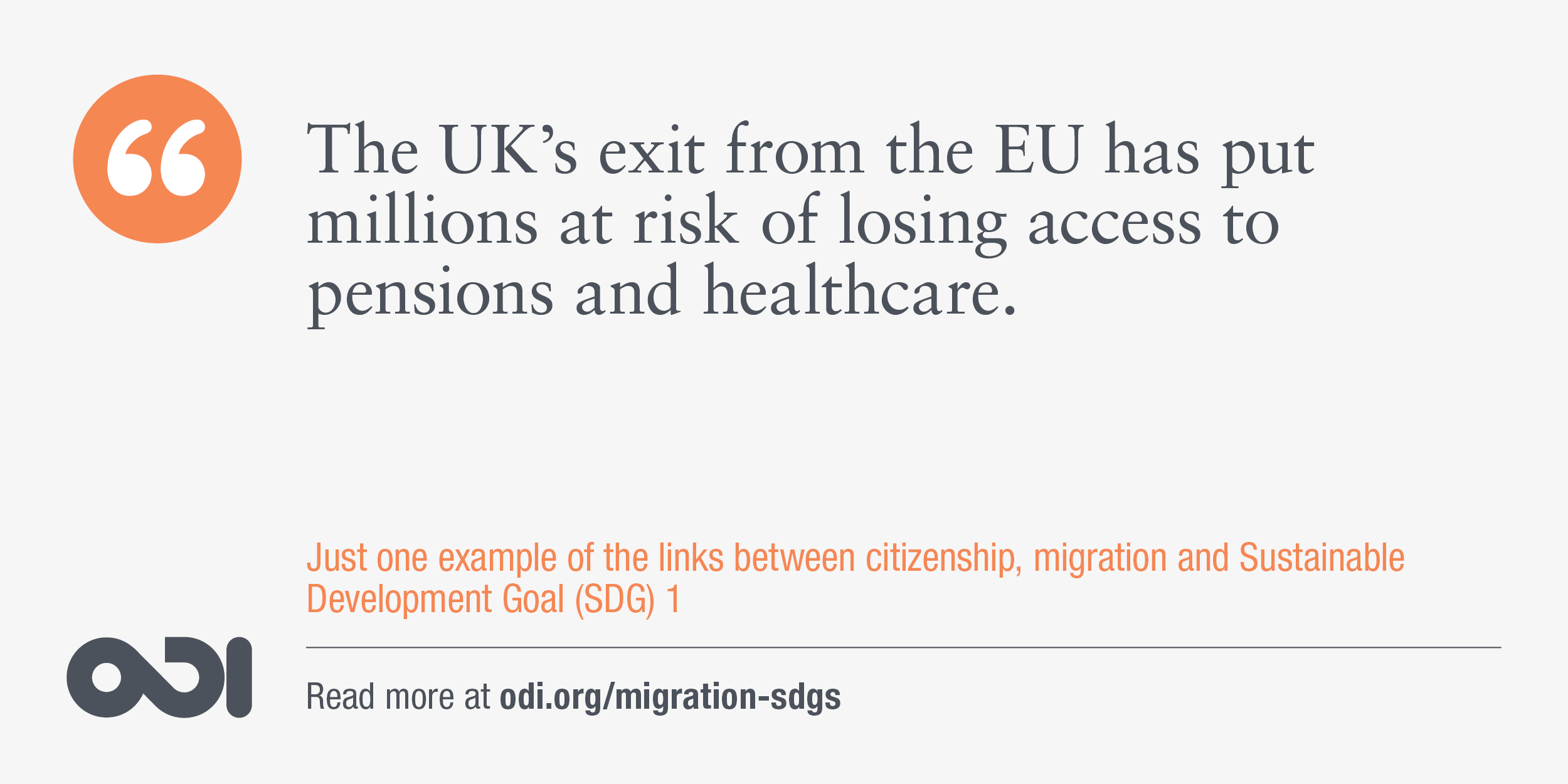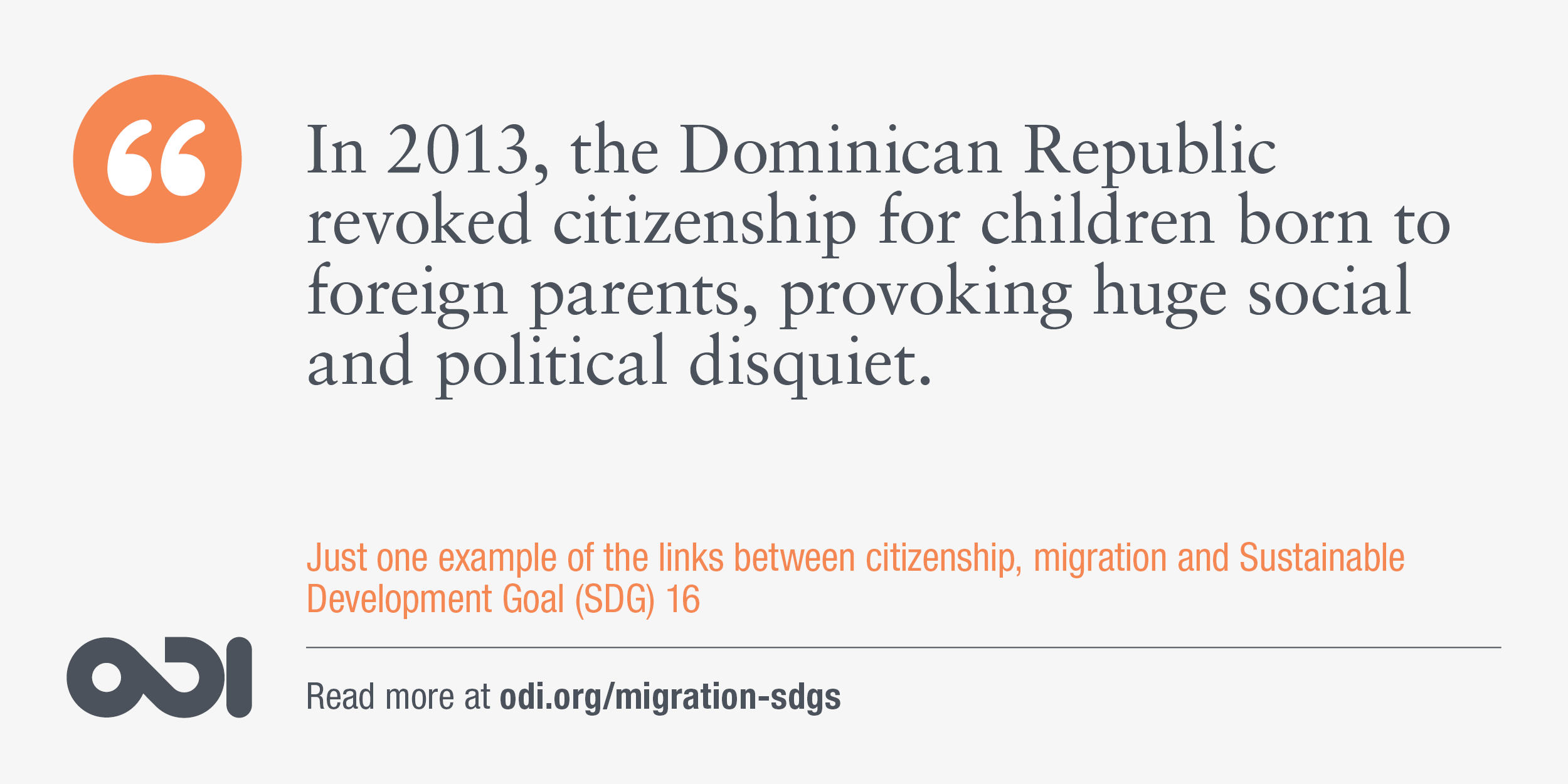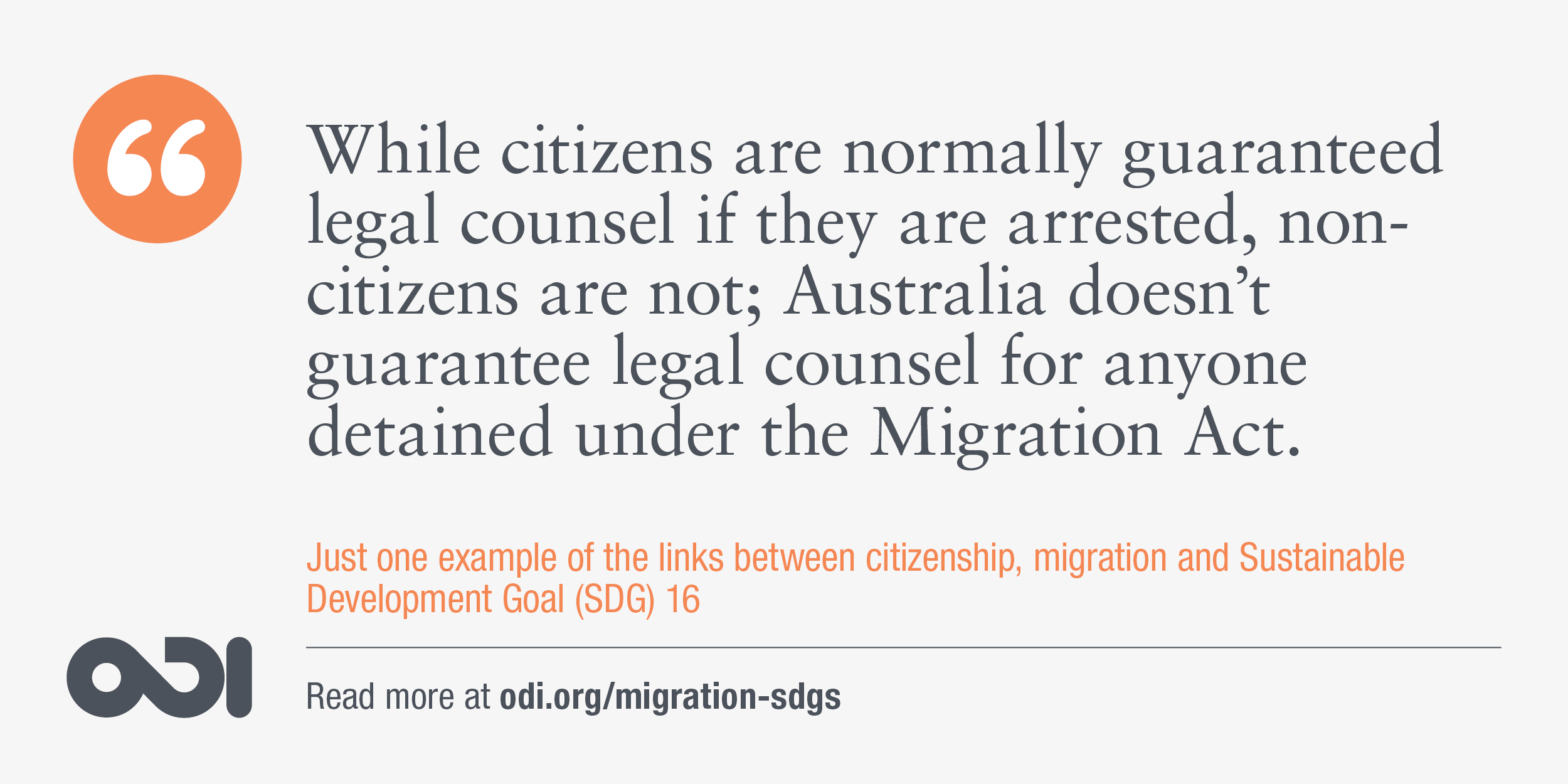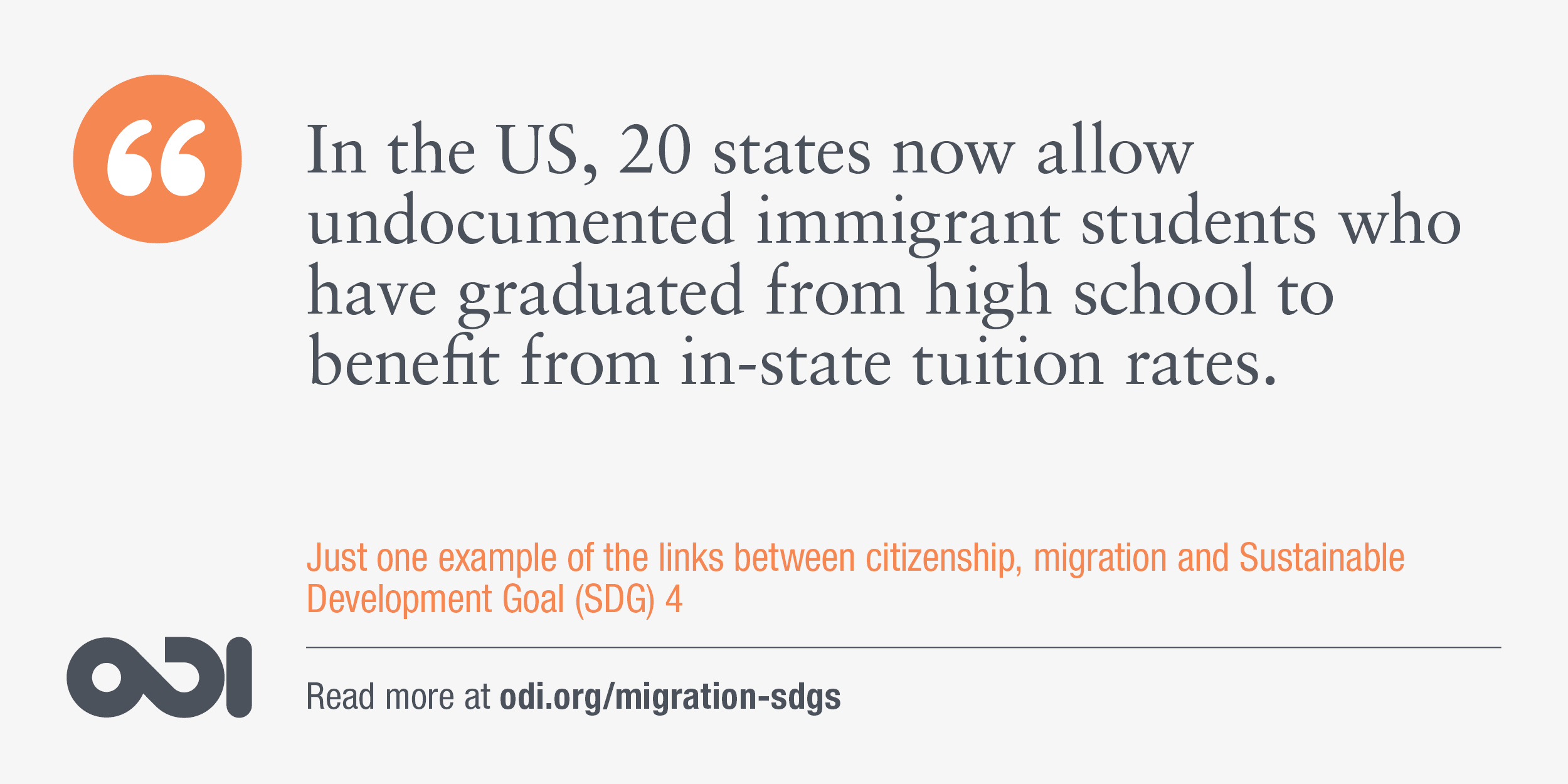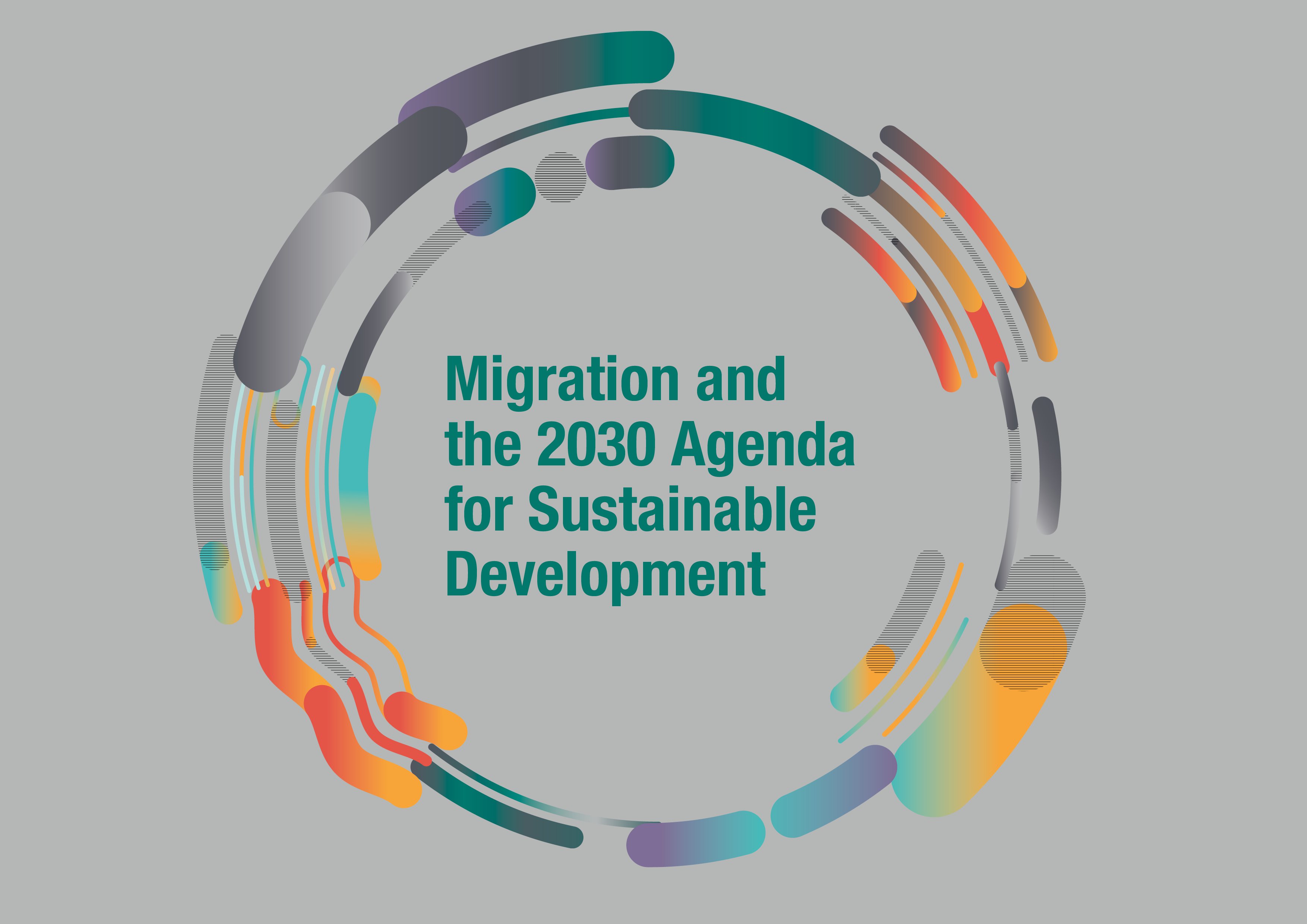Sustainable Development Goal (SDG) 16 calls on states to ‘promote peaceful and inclusive societies for sustainable development, provide access to justice for all, and build effective, accountable and inclusive institutions at all levels’. This briefing considers how ensuring migrants have fair access to appropriate and secure legal status, through permanent residency and/or citizenship, can help achieve this Goal.
Key messages
- Ensuring migrants have access to appropriate and secure legal status can help achieve Sustainable Development Goal (SDG) 16 on peaceful and inclusive societies.
- If granted, permanent residency and/or citizenship can help foster integration. If access is denied, it can lead to tensions between migrants and host communities, further marginalise migrants, and hinder progress towards SDG 16.7.
- Numerous barriers prevent long-term migrants from accessing permanent residency and/or citizenship, including political feasibility, racial, religious and gender bars, stringent language tests, and high costs. These barriers should be removed, or made more flexible.
- Second-generation migrants are particularly affected because they are often excluded from full membership of the communities they have lived in all their lives. States should explore granting full citizenship at birth, or soon after.
This is the eighth in a series of policy briefings on the relationship between migration and 2030 Agenda for Sustainable Development.
Katy Long, Elisa Mosler Vidal, Amelia Kuch and Jessica Hagen-Zanker
